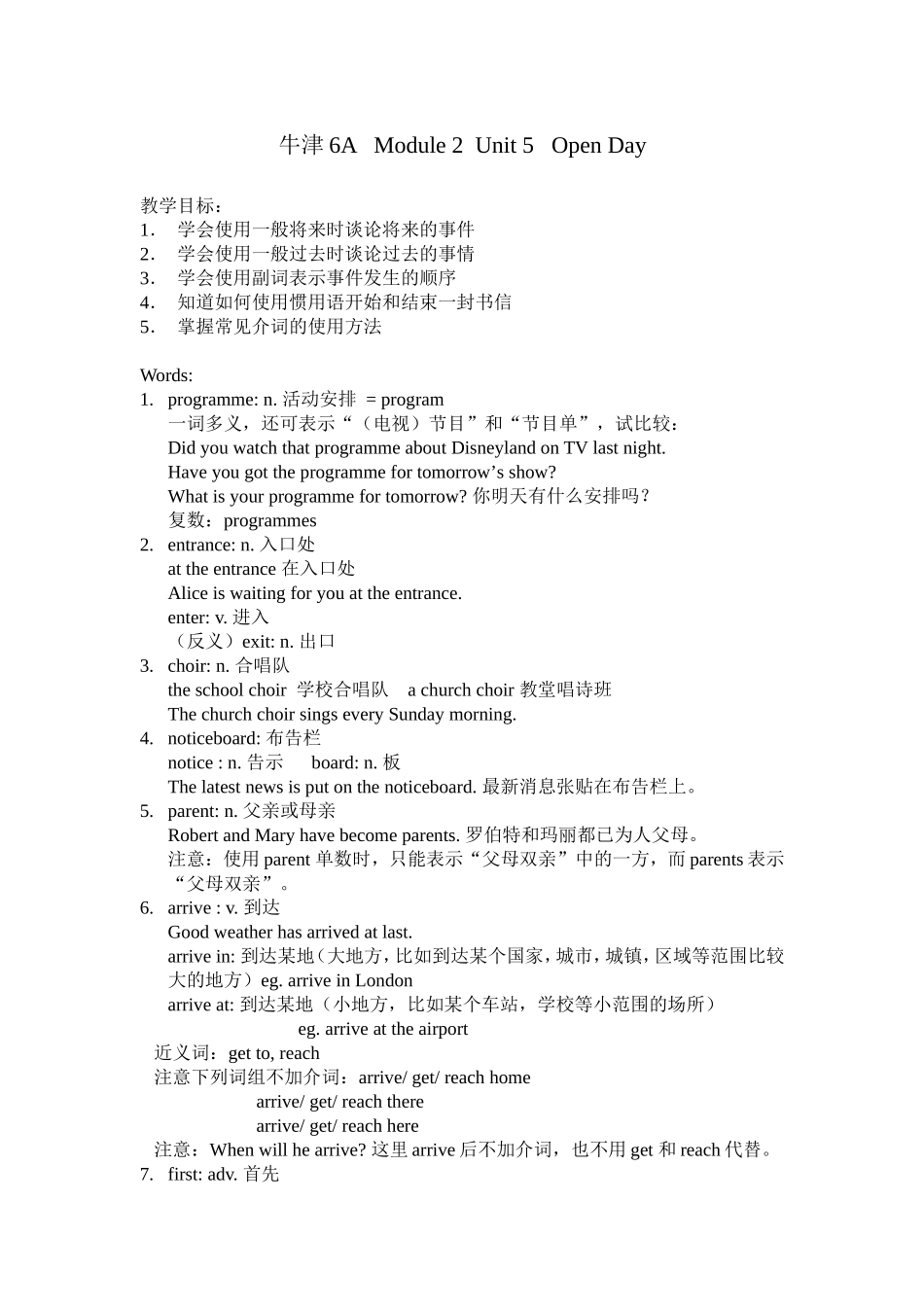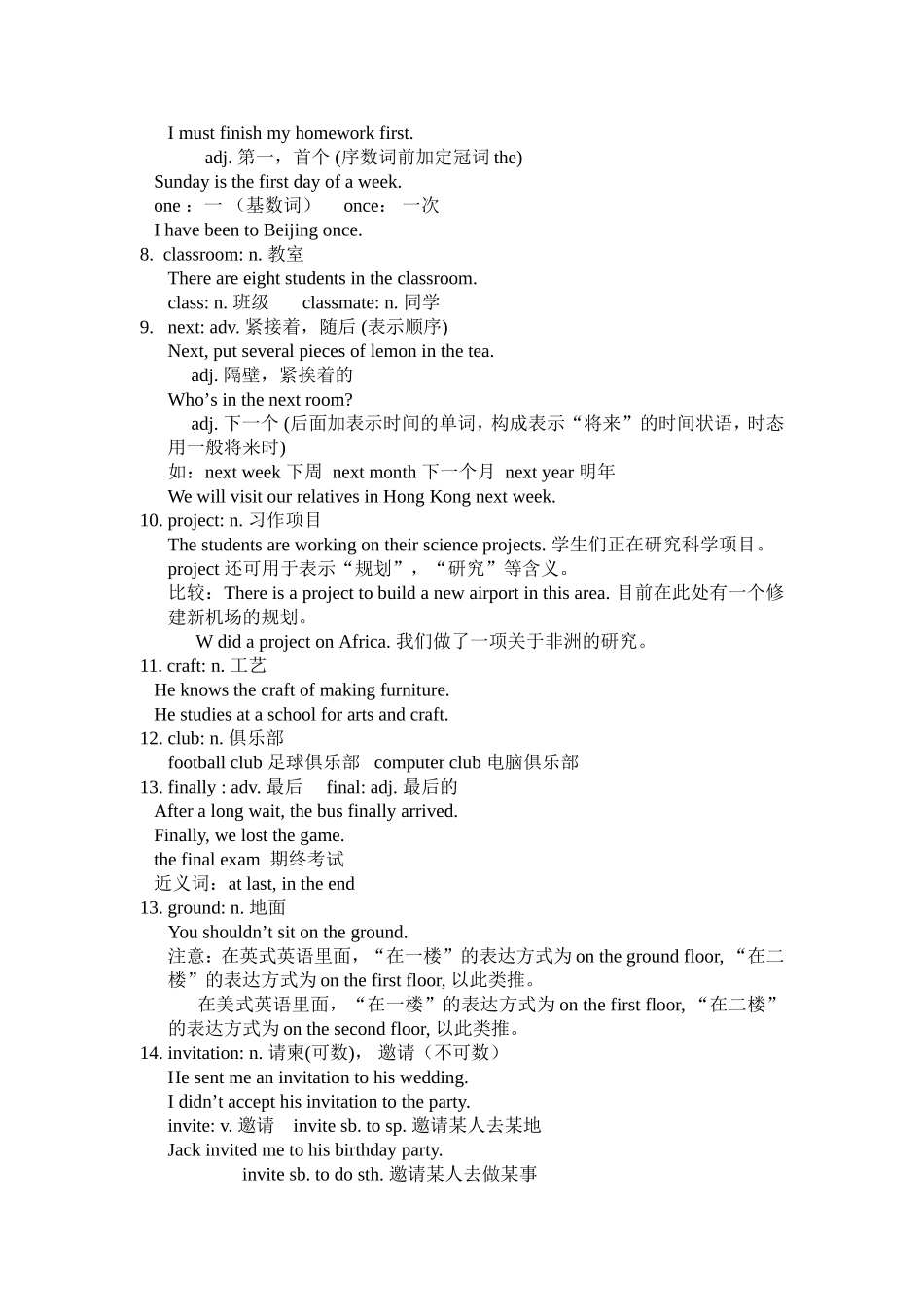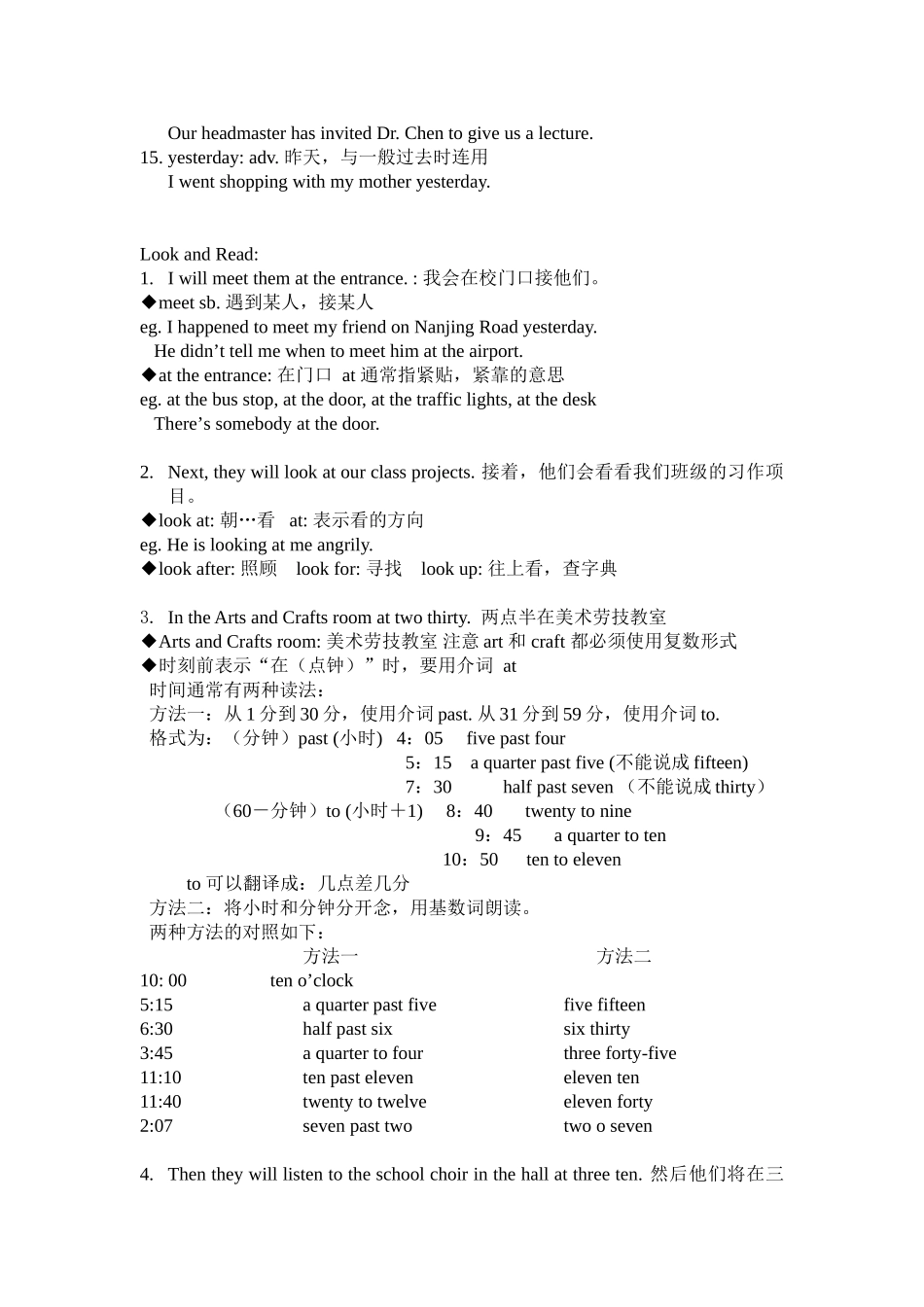牛津 6A Module 2 Unit 5 Open Day教学目标:1. 学会使用一般将来时谈论将来的事件2. 学会使用一般过去时谈论过去的事情3. 学会使用副词表示事件发生的顺序4. 知道如何使用惯用语开始和结束一封书信5. 掌握常见介词的使用方法Words:1. programme: n. 活动安排 = program一词多义,还可表示“(电视)节目”和“节目单”,试比较:Did you watch that programme about Disneyland on TV last night.Have you got the programme for tomorrow’s show?What is your programme for tomorrow? 你明天有什么安排吗?复数:programmes2. entrance: n. 入口处at the entrance 在入口处Alice is waiting for you at the entrance.enter: v. 进入(反义)exit: n. 出口3. choir: n. 合唱队the school choir 学校合唱队 a church choir 教堂唱诗班The church choir sings every Sunday morning.4. noticeboard: 布告栏notice : n. 告示 board: n. 板The latest news is put on the noticeboard. 最新消息张贴在布告栏上。5. parent: n. 父亲或母亲Robert and Mary have become parents. 罗伯特和玛丽都已为人父母。注意:使用 parent 单数时,只能表示“父母双亲”中的一方,而 parents 表示“父母双亲”。6. arrive : v. 到达Good weather has arrived at last. arrive in: 到达某地(大地方,比如到达某个国家,城市,城镇,区域等范围比较大的地方)eg. arrive in Londonarrive at: 到达某地(小地方,比如某个车站,学校等小范围的场所)eg. arrive at the airport 近义词:get to, reach 注意下列词组不加介词:arrive/ get/ reach home arrive/ get/ reach there arrive/ get/ reach here 注意:When will he arrive? 这里 arrive 后不加介词,也不用 get 和 reach 代替。7. first: adv. 首先I must finish my homework first. adj. 第一,首个 (序数词前加定冠词 the) Sunday is the first day of a week. one :一 (基数词) once: 一次 I have been to Beijing once.8. classroom: n. 教室There are eight students in the classroom. class: n. 班级 classmate: n. 同学9. next: adv. 紧接着,随后 (表示顺序)Next, put seve...


